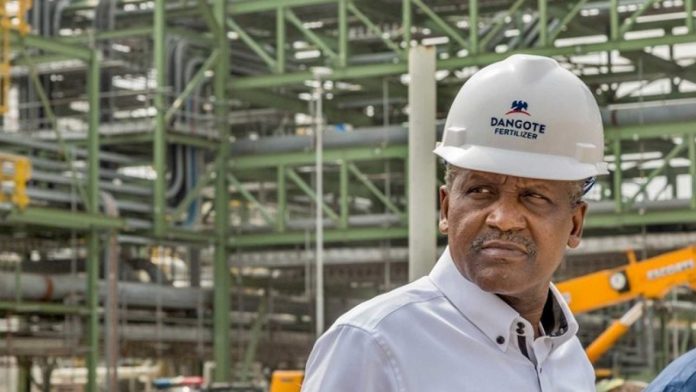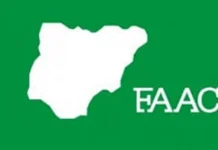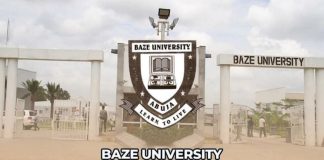The Dangote Petroleum Refinery has issued a stern warning that it will begin exporting its Premium Motor Spirit (PMS), commonly known as petrol, if the Nigerian National Petroleum Company Limited and other local petroleum dealers refuse to patronize it.
Devakumar Edwin, the Vice President of Oil and Gas at Dangote Industries Limited, announced on Monday during the Brekete Family live show that the Dangote Petroleum Refinery has commenced the production of Premium Motor Spirit (PMS). He expressed frustration with local oil traders who have opted to import diesel and aviation fuel, hindering the domestic sales of Dangote’s petrol.
“We have been exporting aviation fuel, we have been producing kerosene, we have been producing diesel, but yesterday, we started the production of PMS. So, that was the last stage. The only thing now left out is petrochemicals.
“So, the good news for the country is we have started producing PMS from our refinery since yesterday (Sunday),” he confirmed.
Asked if the petrol would be sold locally, Edwin replied, “Well, I explained how there has been a kind of a blockade from lifting our products within the country. The traders have been trying to block (it), and so now we have been exporting our petroleum products. PMS, we are ready to pump in as much as possible to the country.
“But if the traders or NNPC are not buying the product, obviously, we will end up exporting the PMS as we are doing with the aviation jet and diesel,” he declared.
Edwin expressed astonishment at the unexpected challenges encountered by Dangote Industries Limited as the company prepared to commence operations at its petroleum refinery. He recalled the initial vision of adding value to domestic raw materials, lamenting that Nigeria continues to export crude oil and import refined petroleum products after more than three decades.
“The philosophy is to take the crude, and instead of exporting the crude, refine it, add value; export the finished products, and supply the finished products locally. But unfortunately for us, we started facing challenges with the crude supply.
“What is happening today? We are struggling to get the crude. We are now importing the crude from the US, we are importing from Brazil, and from other parts of the world. So, the whole philosophy has gone upside down. After all these decades, we are exporting crude, importing products,” he added.
He stated further, “The same thing is continuing. We are not getting enough crude allocation, and the crude is still being exported. We are forced to import crude from outside. Yes, we are getting some crude locally, but it’s not adequate.”
Commenting on the laws governing domestic crude supply obligations, he said, “As per the laws, no crude can be exported, unless all the local refineries requirements are met. That is specified in the Petroleum Industry Act. But we are struggling to get the crude.”
He revealed that the company has started the construction of four crude tanks of 120 million litres capacity each to store imported crude due to low local supply.
“In fact, if you see the refinery, we are building four new crude tanks, each of the tanks has 120 million litres capacity. We have to construct the tanks because we are not getting the local crude. We import from overseas, which means we should have enough stocks due to the shipping time,” he maintained.
Local Demand Shortage
Edwin revealed that the refinery has only achieved a utilization rate of less than 5 percent due to insufficient local patronage despite possessing a gantry capable of loading 2,900 tankers daily .
“Go and see our product gantry, we can load 86 tankers at any given time. We can load 2,900 tankers of petroleum products every day, but we are not even loading five per cent, because those who are interested in the trading business, feel that probably this local production is going to affect their established interest, so they are not allowing our products to be sold locally.
“They are not coming to lift our products. So, what are we doing? We are exporting the products.
“Yes, the refinery can survive, we can import the crude, we can export petroleum products, and we can survive. But is that why he invested in the refinery?” he queried.
On fuel quality, Edwin noted that the refinery has the best laboratory in the world, boasting “No refinery can come and challenge that they have more equipment than us,” he stated.
He added that the petroleum refinery has adopted what he called the Euro 5 grade, saying this is the grade that is acceptable in Europe or the US.
“Our product can be exported to any part of the world, the best in quality, the lowest in sulphur. In terms of pollution, we have no pollution. So, we are producing the best quality products. That is how we are already exporting our product.
“Our aviation jet fuel has gone to Europe, and we are exporting our diesel. So, the refinery has been successfully launched and producing the products,” he added.
The Dangote boss disclosed that one of the philosophies of the business is that wherever it is going to operate, the business should be highly environmentally friendly.
And then, also, every business we go in, we focus on the cost of production and the energy efficiency. And the same thing, philosophy, has been adopted here. So, as we start producing, we find that the energy costs are the lowest.
Dangote not monopolist – Vice President, Dangote Group
Devakumar Edwin, the Vice President of Oil and Gas at Dangote Industries Limited, has expressed concern that some individuals continue to accuse Aliko Dangote, the President of the Dangote Group, of being a monopolist. Edwin emphasized that Dangote’s primary objective in business is to generate wealth and create job opportunities while pursuing profitability.
He revealed that the substantial profits earned by Dangote are being reinvested within the country, contributing to increased wealth creation and boosting the Gross Domestic Product (GDP).
“So, we invest our profits and borrow, and we are investing. This is how Alhaji Aliko has been investing in businesses.
“We are making money, yes, but where is the money going? It is not going to Dubai, it is not going to Switzerland, to some bank accounts. It is not going to buy properties. When I joined him in 1991, Alhaji Aliko had a house in the United States, he had a house in the United Kingdom; everything is sold today, and he is still living in his 35-year-old house.
“He has not even added more houses within the country. Everything he’s putting into manufacturing, creating employment and creating wealth, and yet he is being called a monopolist,” he stated.
Industry sources have confirmed that the Dangote Premium Motor Spirit (PMS), commonly known as petrol, is expected to be released into the Nigerian market shortly. According to sources, the government and the Dangote Group are currently finalizing the details for the distribution of the product.
A government official has hinted that the sale and distribution of the PMS are being coordinated with the Federal Government. The source added that at present, only the Nigerian National Petroleum Company Limited (NNPC) will be authorized to sell the Dangote fuel.
Dangote petrol was initially scheduled to be released to the market in June. However, the refinery faced challenges, including a shortage of crude oil and a dispute with the Nigerian Midstream and Downstream Regulatory Authority, which accused the refinery of producing substandard diesel.
The intervention of the Federal Government that crude oil should be supplied to the refinery in the local currency seems to be yielding the desired result.
Reports reveals Dangote and other local refineries have repeatedly accused international oil companies of not selling crude to them. Recently, the Federal Government announced that the crude deal would commence in October.
The management of Dangote Group also alleged that the IOCs insisted on selling crude oil to its refinery through their foreign agents, saying the local price of crude oil will continue to increase because the trading arms offer cargoes at $2 to $4 per barrel, above Nigerian Upstream Petroleum Regulatory Commission official price.
The group also alleged that the foreign oil producers seem to be prioritising Asian countries in selling the crude they produce in Nigeria.
Reports from last month states that the Dangote refinery engaged in an exchange of words with the NUPRC over the alleged supply of 29 million barrels of crude oil to the refinery.
The Dangote Group had alleged the Nigerian Upstream Petroleum Regulatory Commission (NUPRC) of failing to adequately enforce domestic crude supply regulations, claiming that the refinery has not received sufficient crude oil domestically.
In response, the NUPRC has refuted these allegations, stating that it has facilitated the supply of over 29 million barrels of crude oil to Dangote from January to June 2024. The commission argued that it has been instrumental in ensuring the domestic supply of crude oil to Dangote and other refineries through the monthly production curtailment platform.
However, the Dangote Group has swiftly denied receiving 29 million barrels of crude oil from any source, further intensifying the dispute between the two entities. Experts said the shift was aimed at discouraging banks from holding excess liquidity at the central bank and promoting increased lending activities.
Additionally, these changes are expected to affect the banks’ cost of funds, which will impact the interest rates they offer on loans and deposits.
At the close of the past week, the deposits of banks at the CBN stood at NN3.42tn, the highest in August. The deposits for the previous three weeks combined were N3.57tn. The next day following the announcement, banks had deposited about N1.09tn.
A CBN circular signed by the Director of the Financial Markets Department, Omolara Duke, stated the Standing Deposit Facility rate had been increased to 25.75 per cent on deposits up to N3bn, while deposits exceeding the amount will attract a lower rate of 19 per cent for Commercial and merchant banks, while payment service banks will receive 25.75 per cent on deposits up to N1.50bn with amounts above this threshold earning 19 per cent.Related News
The CBN’s latest adjustments are expected to have an impact on the banking sector. By raising both SLF and SDF rates, the central bank aims to curb excess liquidity, which is often a precursor to inflation.
Recall that at the end of the February MPC meetings, members of the committee blamed excess cash in circulation for the accelerating inflation in the country. The latest CBN data showed that currency in circulation surged to an unprecedented N4.05tn in July 2024, marking an all-time high.
The CBN also provides a Standing Lending Facility window, a short-term lending window for banks and merchant banks, to access liquidity to run their day-to-day business operations. At the end of August, banks had borrowed over N3.02tn.
Meanwhile, Afrinvest in in its monthly market report projected that the operationalisation of the SDF asymmetric corridor reinforces rally expectations.
“Notably, the CBN has cut the interest rate on excess deposits by commercial and merchant banks above an initial N3.0bn limit to 19.0 per cent, down from 25.75 per cent. This effectively lowers the theoretical floor for T-bills, assuming other factors remain constant.
“Lastly, we estimate N1.2tn inflows from maturing T-bills (N622.7bn) and FGN bond coupons (N563bn) to improve liquidity dynamics,” the firm stated.
This article was written by Tamaraebiju Jide, a student at Elizade University












